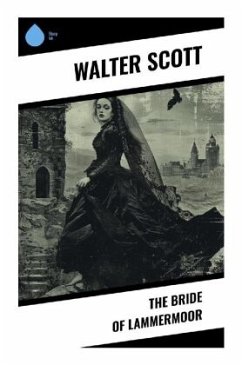
Ivanhoe
Versandkostenfrei!
Versandfertig in 6-10 Tagen
16,70 €
inkl. MwSt.

PAYBACK Punkte
0 °P sammeln!
Walter Scott's "Ivanhoe" is a seminal work of historical fiction that intricately weaves themes of chivalry, romance, and national identity within the tumultuous backdrop of 12th-century England. Utilizing a rich, evocative prose style, Scott masterfully juxtaposes the experiences of Saxons and Normans, illuminating the socio-political tensions of the era. Through well-drawn characters such as the noble Ivanhoe and the valiant Rebecca, Scott explores the complexities of loyalty, justice, and the human spirit against a richly detailed historical tapestry, making this novel a cornerstone of both...
Walter Scott's "Ivanhoe" is a seminal work of historical fiction that intricately weaves themes of chivalry, romance, and national identity within the tumultuous backdrop of 12th-century England. Utilizing a rich, evocative prose style, Scott masterfully juxtaposes the experiences of Saxons and Normans, illuminating the socio-political tensions of the era. Through well-drawn characters such as the noble Ivanhoe and the valiant Rebecca, Scott explores the complexities of loyalty, justice, and the human spirit against a richly detailed historical tapestry, making this novel a cornerstone of both the Gothic and Romantic literary movements. Walter Scott, often hailed as the father of the historical novel, drew on his extensive knowledge of Scottish history and folklore, as well as his own experiences in the Scottish Borders, to craft this enduring tale. His lifelong fascination with the Middle Ages, coupled with his advocacy for Scottish heritage during a time of national identity formation, deeply influenced his narrative approach in "Ivanhoe." Scott sought not merely to entertain, but to educate his readers about the historical periods he so vividly depicted, thus reflecting his respect for history and storytelling. "Ivanhoe" is essential reading for anyone interested in the intersections of history and narrative. Its rich character development and intricate plotlines provide a profound commentary on issues of equality and social justice that resonate even today. This novel invites readers to examine their own cultural identities in the light of Scott's masterful portrayal of medieval England, making it a timeless exploration of the human condition.












